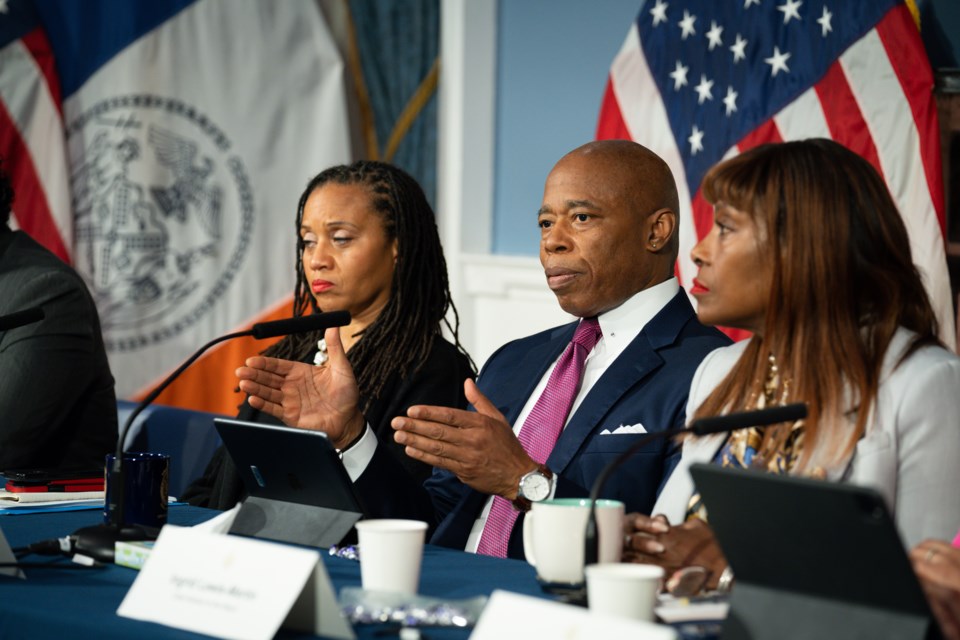Coming off his sit down with the Pope in Vatican City over the weekend, Mayor Eric Adams addressed the recent killing of a 19-year-old Queens man by the police, as well as the implementation of a gun detection pilot program in the subway at his weekly media press conference at City Hall on Tuesday.
The bodycam footage, released on May 3, showed a police officer fatally shoot Win Rozario, who was holding a pair of scissors and standing in the kitchen of his Ozone Park home. The killing occurred three minutes into the NYPD’s visit to the home on March 27, who were called in by Rozario himself during an episode of mental distress.
“When the police respond in this particular case, it was not one of those cases that normally will have the mental health professional respond to,” said Adams. “But you have to get it right and try to get it right all the time. It's just not that easy to do.”
The video shows Rozario was Tased multiple times. After intervention from family members, who pleaded to the officers not to shoot at Rozario, one officer eventually fired four shots.
When asked by BK Reader if NYPD de-escalation tactics would be reviewed and whether the officers would face any consequences for killing the 19-year-old, Adams deferred to the ongoing police investigation and acknowledged the clear need for improvement.
“The unfortunate shooting is going to take its process,” said Adams. “We have to continue to look across the globe on how do we minimize the loss of life of the person involved…I don't think we have it 100% right now. We need to continue to evolve to get it right the best way we can.”
The two officers, Matthew Cianfrocco and Salvatore Alongi, are on “modified assignment,” meaning they’re still working but not carrying firearms or shields.
Meanwhile, the mayor brushed off concerns raised by the Legal Aid Society regarding the incoming pilot program of installing weapons-detection systems in the city’s subways. The nonprofit argued the program is an invasion of privacy for millions of riders, and the technology slated to be used is inadequate in actually detecting weapons.
“Why are people against us detecting guns before they get on the subway system?” asked Adams. “That's just not making any sense for me. We had a shooting on the subway system. One person with a gun traumatized passengers. There are guns carried on our subway system.”
Although the city has still not chosen a company to supply the weapons-detection scanners for the pilot program, the company Evolv, whose scanners were photographed as part of the pilot program announcement in March, has been mired in controversy.
Shareholders filed a class action lawsuit in March against the company alleging they made misleading and materially false claims regarding the capabilities of their technology. The company is also currently under a fact-finding investigation by the U.S. Securities and Exchange Commission, which followed a probe by the Federal Trade Commission last year regarding its marketing practices.
Their scanners were also piloted for seven months at Jacobi Medical Center in the Bronx in 2022. The weapons detection systems had an incident rate of 26% and of the 50,000 triggered alarms, 85% came up as false positives.




